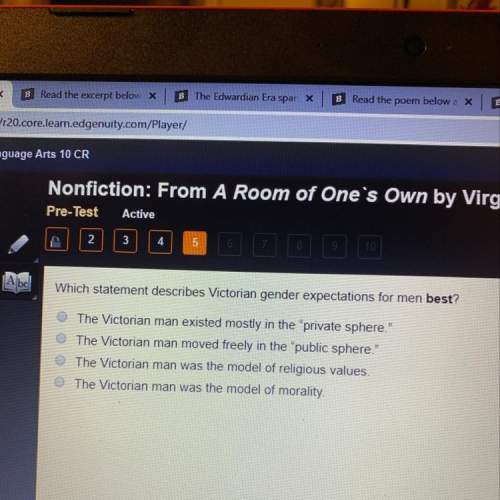
Adapted from On Benjamin Franklin by William Wirt In this essay, the narrator recalls an encounter with Benjamin Franklin. Never have I known such a fireside companion. Great as he was, both as a statesman and a philosopher, he never shone in a light more winning than when he was seen in a domestic circle. It was once my good fortune to pass two or three weeks with him, at the house of a private gentleman, in the back part of Pennsylvania; and we were confined to the house during the whole of that time, by the unintermitting constancy and depth of the snows. But confinement could never be felt where Franklin was an inmate. His cheerfulness and his colloquial powers spread around him a perpetual spring. When I speak, however, of his colloquial powers, I do not mean to awaken any notion analogous to that which James Boswell has given us when he so frequently mentions the colloquial powers of Dr. Samuel Johnson. The conversation of the latter continually reminds one of "the pomp and circumstance of glorious war." It was, indeed, a perpetual contest for victory, or an arbitrary and despotic exaction of homage to his superior talents. It was strong, acute, prompt, splendid, and vociferous; as loud, stormy, and sublime, as those winds which he represents as shaking the Hebrides, and rocking the old castles that frowned upon the dark rolling sea beneath. But one gets tired of storms, however sublime they may be, and longs for the more orderly current of nature. Of Franklin, no one ever became tired. There was no ambition of eloquence, no effort to shine, in anything which came from him. There was nothing which made any demand either upon your allegiance or your admiration. His manner was as unaffected as infancy. It was nature's self. He talked like an old patriarch; and his plainness and simplicity put you at once at your ease, and gave you the full and free possession and use of all your faculties.
In paragraph 5, which context clue helps the reader know the nonliteral, or connotative, meaning of the phrase "He talked like an old patriarch"?
A. He put people at ease with his simplicity.
B. His manner was like an infant or young child.
C. He granted full use of the mind.

Answers: 2


Another question on English

English, 21.06.2019 19:30
Read the excerpt below and answer the question. for a long time she held her neck erect; then her head sank, slowly. her ribs swelled with a mighty heave and she went over. as it is used in this excerpt from “the man who was almost a man,” the phrase “went over” most likely means died escaped jumped vomited
Answers: 1

English, 21.06.2019 22:30
Who is ¨ the guilty party¨ at the end of the text, and how do his actions contribute to the storys theme?
Answers: 3

English, 22.06.2019 01:50
What does atticus do that makes mayella ewell think that he's making fun of her? what does this show us about mayella's life?
Answers: 3

English, 22.06.2019 02:20
According to the riddle of the rosetta stone, what problem did both jean-francois champollion and sylvestre de sacy face in their attempts to decipher the writings on the rosetta stone?
Answers: 2
You know the right answer?
Adapted from On Benjamin Franklin by William Wirt In this essay, the narrator recalls an encounter w...
Questions

Biology, 30.08.2021 03:10


Geography, 30.08.2021 03:10



Mathematics, 30.08.2021 03:10

Biology, 30.08.2021 03:10


Mathematics, 30.08.2021 03:10

Mathematics, 30.08.2021 03:10





Mathematics, 30.08.2021 03:10


Mathematics, 30.08.2021 03:10

Mathematics, 30.08.2021 03:10

Advanced Placement (AP), 30.08.2021 03:10




